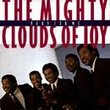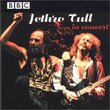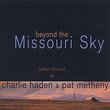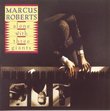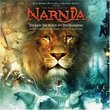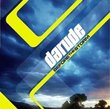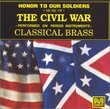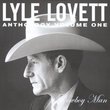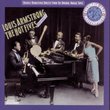| All Artists: Miles Davis Title: '58 Miles Featuring Stella by Starlight Members Wishing: 0 Total Copies: 0 Label: Sony Original Release Date: 1/1/1958 Re-Release Date: 7/23/1991 Genres: Jazz, Pop Style: Bebop Number of Discs: 1 SwapaCD Credits: 1 UPCs: 074644783520, 5099746791827 |
Search - Miles Davis :: '58 Miles Featuring Stella by Starlight
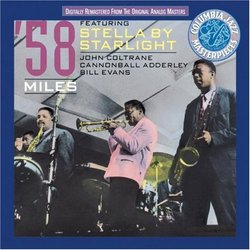 | Miles Davis '58 Miles Featuring Stella by Starlight Genres: Jazz, Pop
|
Larger Image |
CD DetailsSimilar CDs
Similarly Requested CDs
|
CD ReviewsMore from the Kind of Blue sextet. MikeG | England | 06/12/2004 (4 out of 5 stars) "If you've been impressed by `Kind of Blue' and you're looking for more of the same, where do you go? Well, there isn't anything quite like that album, and it depends what it is you like about it that you would hope to find elsewhere. `Milestones' is an obvious one to consider, as it's by the sextet with Coltrane and Adderley on saxophones - but with the magnificent Philly Joe Jones on drums instead of the more `contained' Jimmy Cobb, and pianist Red Garland rather than Bill Evans. Its style is more `hard bop' than anything on `KoB' with most of the pieces at faster tempos. It's only "Sid's Ahead" - a `walking' blues with some majestic improvising from Miles - which approaches the kind of relaxed groove you find on `KoB'. That's not to say the album isn't recommended, but `Kind of Blue 2' it isn't. Nor is this one. But it is, I think, the only other album which is entirely by the KoB personnel (some other tracks by them - for example, from the 1958 Newport Jazz Festival - occasionally appear on compilation discs). This CD is compiled from two different sessions recorded in 1958 - the year before `KoB'. "On Green Dolphin Street", "Fran Dance", "Stella by Starlight" and "Love for Sale" are from a studio session, the first three at slowish tempos and played in a mostly warm, mellow and genial style (unless you think that those adjectives couldn't possibly apply to Coltrane's playing). Miles uses a mute on all four pieces (in fact, "Straight No Chaser" is the only track on the disc on which he doesn't play muted) and he plays well, in his intense, lyrical mode. If you like that side of Miles's music you will like these pieces. If they don't rise to the heights of the best of `KoB', there are nevertheless some good solos from Coltrane, Adderley and Evans and some memorable moments, like the one in "Stella by Starlight" when Miles's solo hands over to Coltrane's with a dramatic high held note. You might be disappointed that Adderley doesn't play on this track. Or you might not. The up-tempo "Love For Sale" is a lively performance with good solos from Adderley and Evans (Coltrane seems to struggle a bit with the chord changes) and Evans's sparky introduction and prodding accompaniment drive the rhythm forward with remarkable confidence, considering that he was something of a `new boy' with the group. "On Green Dolphin Street" is at a relaxed but well-judged pace and everyone solos well on this piece, with the rhythm section adapting well to each soloist. The other tracks are from a live session at the Plaza, part of a `function' at which Columbia was showing off some of its top jazz artists. The sound quality is inferior to that on the studio session - although both are in what the liner note describes as `pre-stereo' sound (could they possibly mean `mono'?). Miles and the saxes come across clearly enough, but Paul Chambers' bass and Evans's piano suffer some distortion. The piano sounds as if it is being played in a different, less congenial, acoustic and although it can be heard clearly it suffers from a peculiar echo effect that detracts from the tonal beauty of Evans's playing. This is a pity on the quartet performance of "My Funny Valentine" as Evans is strongly featured here and plays what sounds like a superb solo, which makes me regret that he and Miles never recorded a quartet session. "Straight No Chaser" is taken much faster than on the `Milestones' album and I think it suffers in the process, sounding a bit frantic and lacking that bouncing swing which gives the `Milestones' version its special character. Sonny Rollins's tune, "Oleo", was always intended to be a fast piece but I think it too loses something by being a bit faster than the group as a whole seems comfortable with, although Miles, Evans and Adderley are still able to construct some good lines. I'd have to call this CD recommendable, partly because it's the only other one which is entirely by the Kind of Blue sextet, but also because the music has its own solid merits. A pity it lacks the quality of `post-mono' recorded sound we get on `KoB', although the sound on the four studio tracks is acceptable enough - clear, well balanced and in a warm acoustic." The one that hooked me Pharoah S. Wail | Inner Space | 04/30/2000 (5 out of 5 stars) "This was the first "jazz music" I ever bought, it must have been around 1990 or 1991 (I'm only 25, cut me some slack!). I was just beginning to enter the world of improvisational music and someone told me "Miles Davis is a jazz guy, he improvises". Based on that expert analysis I randomly picked something with Miles on it, this just happened to be the one.Miles and Bill Evans got to me, but I wasn't in love. The saxophonists were tougher for me to grasp. For whatever reason I just couldn't "get it". After listening to this cd maybe once every three months for about a year one day it just hit me! The voracious swing of STRAIGHT, NO CHASER just crawled into my soul and I've never been the same since. This isn't the wide open, scary Coltrane of later years but it IS a Coltrane who plays with such rhythmic thrust and density that he can really tuck you into all sorts of spacial and rhythmic nooks and crannies within this music. Miles uses the mute most of the time, Cannonball's tone and "straight-ahead soul" playing is gorgeous.Rarely mentioned but undeservedly so, this is a great cd." Superb..but get the box set Sean M. Kelly | Portland, Oregon United States | 09/24/2000 (5 out of 5 stars) "This collection of 1958 goodies shows a new lineup for Miles, as pianist Red Garland was replaced with Bill Evans by this point. Evans was a very different player than Garland, as his arrival foreshadow Miles' move in the modal direction. Evans was certinly better equipped to handle such a move than the more traditional Garland.The tracks on this disc are wonderful, mostly showcasing ballads and slower numbers. As always, Miles' playing was in great form, his harmon mute making his tone more distant yet vulnerable. The whole group is boosted by the addition of Evans, who's style is more open and allows for more flexability than Garland's did. Miles, Coltrane, and Adderley certainly take full advantage of this on all the tracks, but its more noticable on the ballads. Their interpretations of "On Green Dolphin Street," "Fran Dance," "Stella by Starlight," and "My Funny Valentine," are all second to none.The 2 uptempo numbers, "Love For Sale," and Monk's "Straight, No Chaser," must have been breaths of fresh air for Philly Joe Jones and John Coltrane, as their playing is on fire. Adderley, certainly the most flexible sideman on this project, offers his blues interpretations to the songs, lifting them to new heights of possibilities. More a showcase for Coltrane,Adderley,and Jones, Miles, while certainly not laying out, allows his 2 sidemen much of the spotlight, as a good leader does.These tracks are priceless, showing the transitional phases of Miles'late 50's groups, (Jones would soon be replaced by Jimmy Cobb) and showing what an amazing group they were. These tracks are also on the Columbia box set for this period, and that comes more highly recommended than this lp, though certainly this cd is top rate by itself."
|

 Track Listings (7) - Disc #1
Track Listings (7) - Disc #1